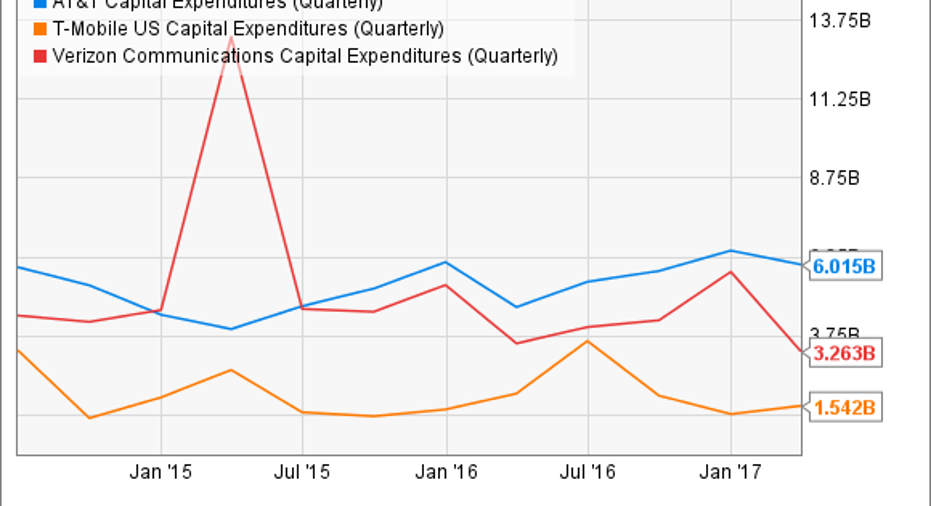This Wireless Provider Has the Fastest Network in the Country (and It's Not Verizon)

Some high-speed wireless networks are faster than others. According to studies by the network quality specialists at OpenSignal, one operator beat them all in the summer of 2016 -- and the fastest rival could not quite catch up in the February 2017 report.
You already know that Verizon Communications (NYSE: VZ) failed to win this speed test, despite its repeated claims of having the largest and fastest network in America. So the winner, obviously, was...
Not AT&T (NYSE: T), either. Ma Bell fell far behind the top two in 4G speed tests.
No, the real winner was T-Mobile US(NASDAQ: TMUS).
Really?
It's true. The self-proclaimed Un-carrier beat Verizon's average 4G download speeds last August by 2%. Their speeds were within the margin of error in February, after substantial upgrades from both Verizon and T-Mobile. And in terms of the older 3G network standard, T-Mobile won both tests by a crushing margin:
Image source: OpenSignal.
T-Mobile's repeated victories only look more unlikely when you consider the fact than AT&T and Verizon are wielding much larger infrastructure budgets. T-Mobile has invested $8.2 billion in network maintenance and improvement over the last four quarters, while Big Red poured $17.3 billion into capital expenses and AT&T's budget soared to $23.8 billion.
T Capital Expenditures (Quarterly) data by YCharts.
Verizon started upgrading its network last summer with LTE-Advanced technologies. When paired with a supported handset, these signals can run much faster than the aging LTE standard. This effort boosted Verizon's download speeds by 26% in the New York market, and helped the company catch up to T-Mobile overall.
T-Mobile's recent rise in the speed rankings comes from the use of 700 MHz radio spectrum licenses, acquired from Verizon in a $2.4 billion deal three years ago. Following up on that success story, T-Mobile outbid all comers in the Federal Communications Commission's latest spectrum auction. The $8 billion T-Mobile invested in that auction of 700 MHz licenses will quadruple the Un-carrier's low-band capacity.
Image source: OpenSignal.
What's next?
That's a sharp break from T-Mobile's former reliance on lower-quality signals in frequency bands near 1.8 GHz and 2.2 GHz. The 700 MHz band is where AT&T and Verizon built their empires. Real estate in this space is worth its weight in, well, smartphones. When T-Mobile starts to install network hardware to take advantage of these plush new licenses, connection speeds and network quality will continue to rise.
It's not necessarily about making the largest network investments, but the smartest ones. In that light, T-Mobile's rapidly improving network starts to make sense.
The next challenge, of course, is to convince consumers that the quality improvements are real -- and worth switching networks for. Expect a T-Mobile marketing blitz in late 2017, driving these points home as the new 700 MHz connections start to show up.
Find out why T-Mobile US is one of the 10 best stocks to buy now
Motley Fool co-founders Tom and David Gardner have spent more than a decade beating the market. (In fact, the newsletter they run, Motley Fool Stock Advisor, has tripled the market!*)
Tom and David just revealed their ten top stock picks for investors to buy right now. T-Mobile US is on the list -- but there are nine others you may be overlooking.
Click here to get access to the full list!
*Stock Advisor returns as of May 1, 2017
Anders Bylund owns shares of T-Mobile US. The Motley Fool owns shares of and recommends Verizon Communications. The Motley Fool recommends T-Mobile US. The Motley Fool has a disclosure policy.



















